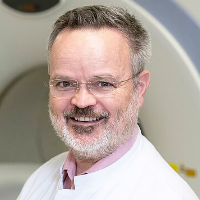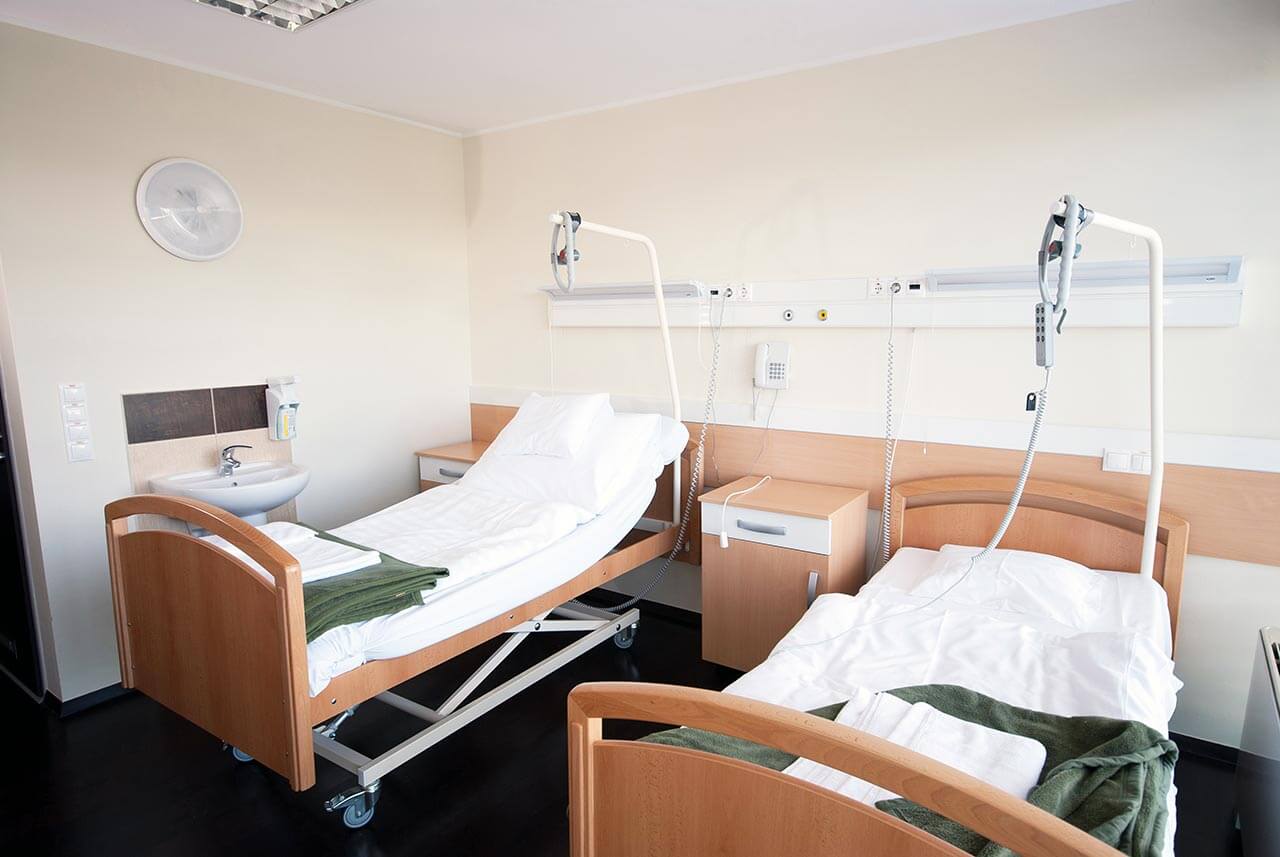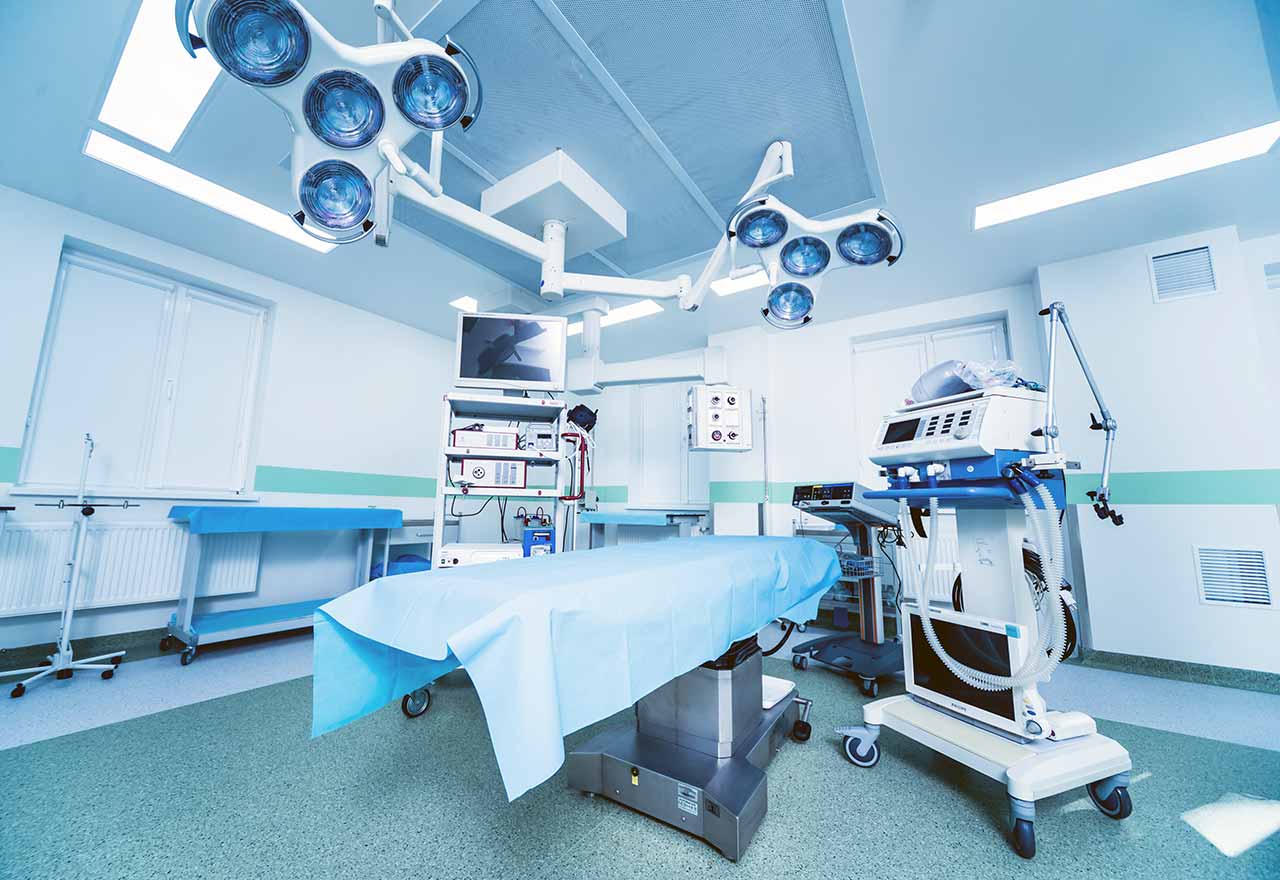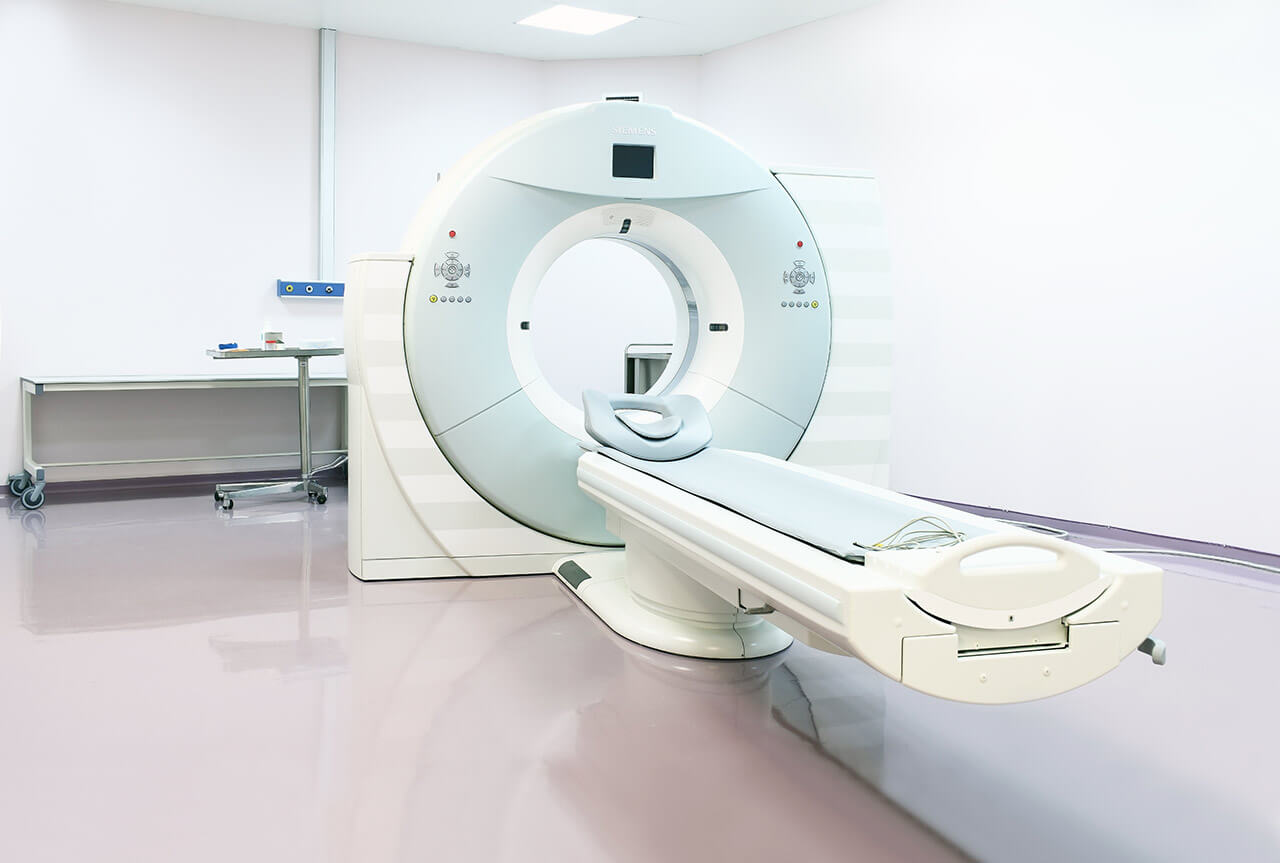
The program includes:
- Initial presentation in the clinic
- case history collection
- general clinical examination
- laboratory tests:
- complete blood count
- general urine analysis
- biochemical analysis of blood
- TSH-basal, fT3, fT4
- tumor markers (thyroglobulin (TG),
TG antibodies (TgAb)) - indicators of inflammation
- indicators of blood coagulation
- ultrasound scan of the thyroid gland
- thyroid scintigraphy
- radioiodine therapy
- symptomatic treatment
- cost of essential medicines
- nursing services
- stay in the hospital with full board in 2-bed room
- elaboration of further recommendations
How program is carried out
During the first visit, the doctor will conduct a clinical examination and go through the results of the available diagnostic tests. After that, you will undergo the necessary additional examination, such as the assessment of liver and kidney function, ultrasound scan of the thyroid gland and lymph nodes of the neck, thyroid scintigraphy. This will allow your doctor to assess how effective radioiodine therapy will be and how well you will tolerate it. In addition, the doctor will calculate the dosage of the drug you need.
Radioiodine therapy with I-131 includes oral administration of the drug. You will take 1 to 4 radioactive iodine capsules or drink about a teaspoon of liquid with radioactive iodine. You will take the drug in your ward, without visiting the manipulation room or operating room.
After taking radioactive iodine, you will stay in your ward for 24 to 48 hours. The next morning after the procedure, the dosimetrist will determine the amount of radiation in your body. If the amount is low, you will be allowed to leave your ward and will be discharged from the hospital. If the amount is high, then the dosimetric control will continue for another day, until a low amount of radiation in your body is detected.
The isotope I-131 can accumulate not only in the thyroid gland, but also partially in the salivary glands. This can cause dry mouth. To get rid of this side effect, you will dissolve sour candies, as this stimulates the work of salivary glands.
The drug is quickly excreted by the kidneys, and after 48 hours you will no longer pose a danger to others. After the procedure, you should drink at least 1 glass of water per hour and visit the toilet regularly. This will allow you to quickly remove radioactive iodine from the body. Food can be usual, without excess iodine in the diet.
During these 48 hours, you can read, use a mobile phone, tablet or computer. All these devices will not be a source of radiation in the future.
Control examination includes scintigraphy, which is performed 7-10 days after radioiodine therapy. Based on the results of the examination, the doctor will determine how well the cells of the thyroid gland (or cancer metastases) have accumulated radioactive iodine. In a few weeks after the procedure, you will have a control blood test for thyroid hormones. In the future, you will visit an endocrinologist regularly.
Required documents
- Medical records
- MRI/CT scan (not older than 3 months)
- Biopsy results (if available)
Service
You may also book:
 BookingHealth Price from:
BookingHealth Price from:
About the department
The Department of Nuclear Medicine at the HELIOS University Hospital Wuppertal offers all types of modern diagnostics and treatment using radioisotopes. The main diagnostic method available in the department is PET-CT (positron emission tomography combined with computed tomography). This technique is most often used to detect cancers. PET-CT is also used to diagnose neurological and cardiac diseases. The procedure allows doctors not only to visualize anatomical structures of the human body, but also to assess the metabolic activity of a particular tissue. The department's therapeutic offer includes radioiodine therapy for the treatment of thyroid diseases, radioimmunotherapy for CD20-positive non-Hodgkin's lymphoma, and pain management using radioactive drugs. Treatment can be both inpatient and outpatient – the optimal regimen is selected by the attending physician individually. Radioiodine therapy is carried out exclusively on an inpatient basis. The patients of the department receive medical care from the highly professional team of doctors, who make every effort to provide them with top-class services. The department is headed by Dr. med. Marco Tosch.
The department's medical team carries out radioiodine therapy for the treatment of benign (for example, goiter or thyrotoxicosis) and malignant (for example, differentiated papillary and follicular carcinoma) thyroid diseases. For malignant thyroid diseases, surgical removal of the tumor is most often required, and radioiodine therapy acts as an additional type of treatment, which the patient undergoes after the surgical intervention. The essence of radioiodine therapy is oral administration of a capsule with radioactive iodine (Iodine-131). After entering the body, the isotope is concentrated in the thyroid cells and metastases, thereby irradiating them. The final results of radioiodine therapy can be assessed approximately three months after the procedure. The effectiveness of this type of treatment is quite high, and the risk of side effects is minimal.
The department offers another innovative treatment method – radioimmunotherapy for CD20-positive non-Hodgkin's lymphoma. This type of therapy is used in several cases: recurrences of the disease, lack of response to antibody therapy, consolidation therapy after the first remission. Within two days after the therapy, the patient stays in the hospital.
The department's range of services is complemented by pain management. Radionuclide therapy is indicated for patients with osteoblastic metastases (for example, in case of breast or prostate cancer). This therapy is used to improve the quality of life or to alleviate the side effects of painkillers. The procedure involves intravenous administration of radioactive Samarium-153, which is absorbed by pathological tissues. 2-3 hours after the procedure, doctors conduct scintigraphy to assess the accumulation of the radioisotope in the metastases. The patient will feel relief in just a few days, and the effect of the therapy will last for at least four months.
Radiosynoviorthesis (RSO) is used for the treatment of inflammatory joint diseases such as chronic polyarthritis, monoarthritis and arthrosis with an inflammatory component ("activated arthrosis"). During the procedure, the radioactive substance is injected into the affected joint. After treatment, patients report alleviated inflammation and, consequently, pain relief. In addition, the affected joint is immobilized for a short time.
The department's range of medical services includes:
- Diagnostics
- PET-CT
- Scintigraphy
- Treatment
- Radioiodine therapy for thyroid diseases
- Radioimmunotherapy for CD20-positive non-Hodgkin's lymphoma
- Pain management with Samarium-153 radioactive substance for osteoblastic metastases
- Radiosynoviorthesis (RSO) for the treatment of chronic inflammatory joint diseases
- Other diagnostic and therapeutic options
Photo of the doctor: (c) Helios Universitätsklinikum Wuppertal
About hospital
According to the prestigious Focus magazine, the HELIOS University Hospital Wuppertal ranks among the top medical facilities in Germany!
The hospital rightfully enjoys the status of the maximum care medical facility and provides its high-quality services in all modern fields of medicine. The hospital operates on the basis of the Witten/Herdecke University, which was opened in 1982 and today is considered one of the best in Germany. Thus, many head physicians of the medical complex are in charge of the corresponding department at the university, which contributes to the close intertwining of research activities and clinical practice. The hospital has long traditions and its own values – the main goal of doctors is to provide comprehensive medical care focused not only on curing the disease, but also on the patient's personal needs.
The hospital has 1,000 beds. The doctors of the medical facility admit more than 50,000 inpatients annually. In addition, more than 100,000 outpatients undergo diagnostic and therapeutic procedures. Such high attendance rates speak for themselves and are undeniable proof of the high-quality medical service of the European level. The medical staff of the hospital has more than 2,500 employees, whose main task is to restore the patient's health and provide him with a decent quality of life.
The hospital has more than 26 specialized departments, as well as many narrowly focused centers and institutes dealing with the treatment of patients suffering from a particular group of diseases: Breast Center, Cancer Center, Cardiology Center, Trauma Center, Spine Center and others. The primary clinical focus of the medical center is cancer treatment.
For more than 25 years, the hospital has been running a special quality management system for medical care, which regulates the aspects of work of the medical staff, compliance with hygiene and safety standards during diagnostics and treatment. Consequently, patients can be sure that their health is in the safe hands of true professionals who work in accordance with the latest medical standards.
Special attention should be paid to the honors of the hospital for excellent patient care. The medical complex has quality certificates from the German Cancer Society (DKG), the German Trauma Society (DGU), the German Cardiac Society (DGK), the German Stroke Society (DSG) and other professional German societies.
Photo: (с) depositphotos
Accommodation in hospital
Patients rooms
The patients of the HELIOS University Hospital Wuppertal live in comfortable single, double, triple and quadruple rooms. Each patient room has an ensuite bathroom with shower and toilet. The standard room furnishings include a comfortable automatically adjustable bed, a bedside table, a wardrobe, a TV and a telephone. The hospital has Wi-Fi (free). For maximum patient comfort, there is a nurse call device on the bedside table. This device allows the patient to control the TV, radio, turn on or off the lights, and adjust the position of the bed.
The patients of the hospital are also offered accommodation in enhanced-comfort rooms. These rooms additionally provide a safe and a free minibar with soft drinks. The enhanced-comfort rooms also have a spacious bathroom with hairdryer, bathrobe, towels and toiletries.
Meals and Menus
The patients of the hospital are offered three meals a day: breakfast, lunch and dinner. The menu offers a variety of delicious dishes to suit all tastes, including dietary and vegetarian options.
The hospital also has a bistro where one can taste delicious hot dishes, cold snacks, desserts, as well as a cup of tea, coffee or refreshments.
The patients staying in enhanced-comfort rooms are offered a separate menu that includes a wider and more refined range of dishes. In addition, fresh fruit, tea, coffee and desserts are delivered to the patient room every day, if desired.
Further details
Standard rooms include:
Religion
The religious services are available upon request.
Accompanying person
During an inpatient program, your accompanying person can stay with you in the patient room or in the hotel of your choice.
Hotel
During an outpatient program, you can stay in the hotel of your choice. Our managers will help you choose the most suitable options.




